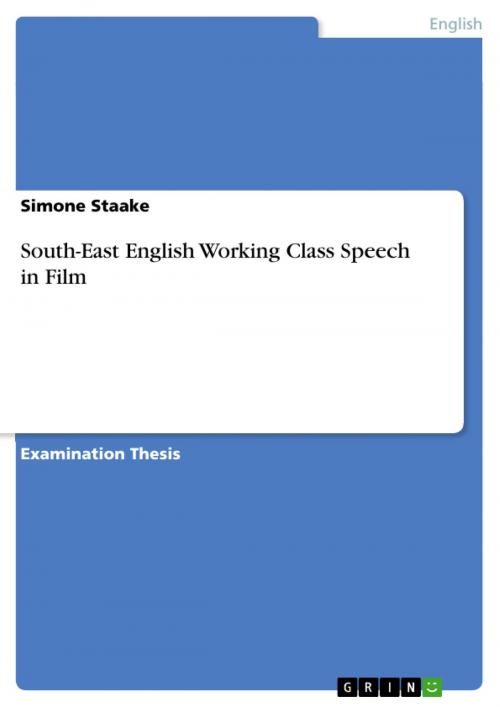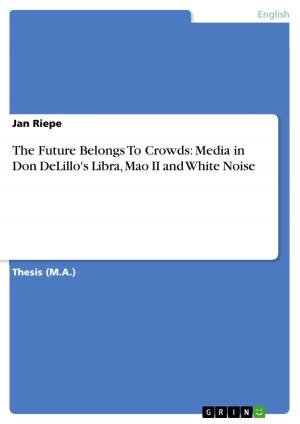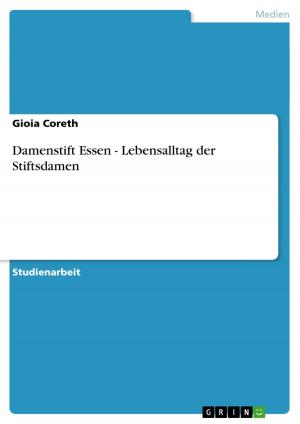South-East English Working Class Speech in Film
Nonfiction, Reference & Language, Study Aids, ESL, Foreign Languages| Author: | Simone Staake | ISBN: | 9783640199808 |
| Publisher: | GRIN Publishing | Publication: | October 29, 2008 |
| Imprint: | GRIN Publishing | Language: | English |
| Author: | Simone Staake |
| ISBN: | 9783640199808 |
| Publisher: | GRIN Publishing |
| Publication: | October 29, 2008 |
| Imprint: | GRIN Publishing |
| Language: | English |
Examination Thesis from the year 2008 in the subject English Language and Literature Studies - Culture and Applied Geography, grade: 2,3, University of Flensburg, 27 entries in the bibliography, language: English, abstract: This work will try to refute this claim, persisting that class is an indefinable and merely personal criterion of post-war British movie. It will be spotted that especially the working-class is, by using typical speech patterns, a major marker when a film deals with the British class system. To enlighten in which surrounding the British post-war movie is set, a brief introduction of the cinema history will be given. This will not only look at the development in British cinema, but also relate to the country's historical and economical changes from the post-war to modern time. As cinema is always of international concern, relations to other developments in other countries will be given a short insight when necessary. As already stated in the quotation above, class and class markers are not easy to confine. An overview will be given about the British class system and its importance throughout the history. As this is a characteristic of British culture and the way of life, some examples of how this self-assurance marks life will be given by quoting a native sociologist. The focus will lie on the working class, as this work deals with specific dialects that derive out of the same. This includes an overview over the history of London's working class and special criteria it has to fulfil. When operating with working class speech, the main dialects for south-east England will be described, as well as the fundamental idea of the term dialect. This will be included in the historical and sociological development of both examples being given - Cockney English as main emphasis and Estuary English.
Examination Thesis from the year 2008 in the subject English Language and Literature Studies - Culture and Applied Geography, grade: 2,3, University of Flensburg, 27 entries in the bibliography, language: English, abstract: This work will try to refute this claim, persisting that class is an indefinable and merely personal criterion of post-war British movie. It will be spotted that especially the working-class is, by using typical speech patterns, a major marker when a film deals with the British class system. To enlighten in which surrounding the British post-war movie is set, a brief introduction of the cinema history will be given. This will not only look at the development in British cinema, but also relate to the country's historical and economical changes from the post-war to modern time. As cinema is always of international concern, relations to other developments in other countries will be given a short insight when necessary. As already stated in the quotation above, class and class markers are not easy to confine. An overview will be given about the British class system and its importance throughout the history. As this is a characteristic of British culture and the way of life, some examples of how this self-assurance marks life will be given by quoting a native sociologist. The focus will lie on the working class, as this work deals with specific dialects that derive out of the same. This includes an overview over the history of London's working class and special criteria it has to fulfil. When operating with working class speech, the main dialects for south-east England will be described, as well as the fundamental idea of the term dialect. This will be included in the historical and sociological development of both examples being given - Cockney English as main emphasis and Estuary English.















